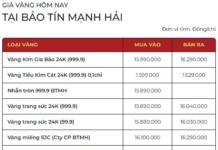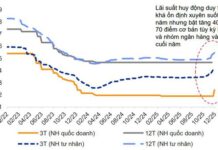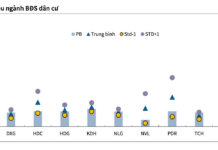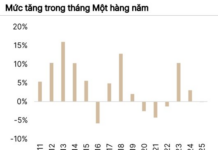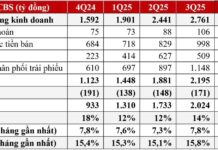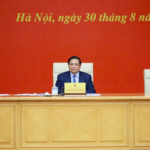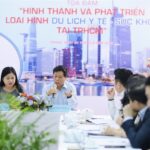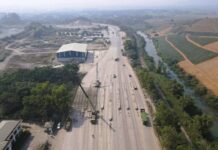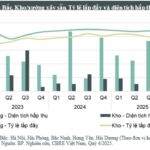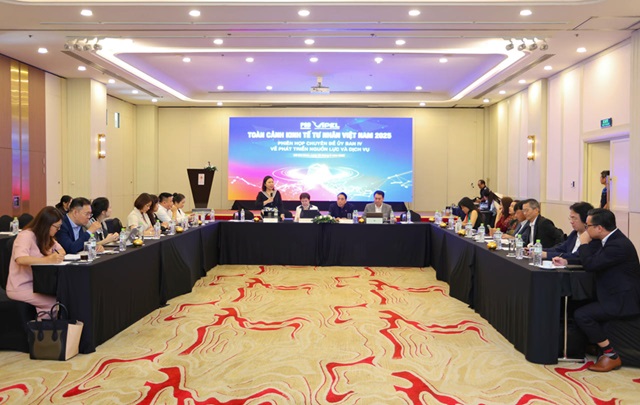
On September 28, 2025, Committee IV convened a meeting to discuss the development of resources and services, focusing on core values, effective implementation strategies, and criteria for key projects at national, local, and grassroots levels, categorized into 20, 200, and 2,000 projects.
|
On September 28, 2025, in Ho Chi Minh City, Committee IV held a specialized meeting on the development of resources and services. The discussion centered on core values, effective implementation strategies, and criteria for key projects at national, local, and grassroots levels, categorized into 20, 200, and 2,000 projects.
This meeting marks the first step in the Vietnam Private Economic Landscape (ViPEL) initiative, setting the stage for the upcoming ViPEL program on October 10 and establishing a long-term, regular work plan.
The meeting was chaired by Committee IV co-chairs, Mrs. Cao Thi Ngoc Dung, Chairwoman of PNJ, and Mr. Nguyen Anh Tuan, Vice Chairman of Vietjet Air. Over 25 leading enterprises from sectors such as healthcare, education, retail, e-commerce, aviation, and tourism were in attendance.
Nation-building and economic development are not the responsibility of any single entity.
During the meeting, Mrs. Pham Thi Ngoc Thuy, Director of the Committee IV Office and ViPEL Secretary, stated that Committee IV has proposed several initiatives to address the question: What has been done and what are the results after three months of Resolution No. 68-NQ/TW on private economic development? The private sector has proposed the establishment of a Private Economic Development Fund, along with a mechanism for regular evaluation and assessment, tailored to practical developments, to support business growth.
Thus, the ViPEL model was born, reflecting the private business community’s desire to establish a mechanism for regular, effective dialogue and coordination with the government, rather than merely presenting challenges at conferences. The initiative has received strong support from Prime Minister Pham Minh Chinh. After several rounds of discussion, the model has been shaped by the collective intelligence of over 20 prominent entrepreneurs, addressing the urgent question: “What is the landscape of Vietnam’s private economy?”
To realize this vision, lessons from Japan, South Korea, and Taiwan highlight the importance of strong public-private partnerships. This is the essence of the “Public-Private Nation-Building” initiative: nation-building and economic development are not the responsibility of any single entity. Whether large or small enterprises, or simply citizens using Vietnamese products and services, everyone contributes to the common cause.
In this mechanism, the public sector provides resources through policies, legal frameworks, and transparency, while the private sector contributes aspirations, intelligence, finance, technology, human resources, and management capabilities. This is no longer a “give-and-take” relationship but a collaborative effort where challenges are addressed together. ViPEL’s operation must be based on strong commitments from both public and private sectors from the outset, with transparent and regular monitoring and evaluation mechanisms, rather than mere slogans.
“The 2025 outcomes will lay the foundation for ViPEL to evolve from a movement into a sustainable public-private coordination structure, effectively addressing the challenges of public-private nation-building from 2026 onward,” emphasized Mrs. Thuy.
Within the broader framework of national development, ViPEL is designed to aggregate and unite the strengths of the private sector to contribute to the nation. Major national issues will be entrusted to private sector representatives, replacing the “every man for himself” mindset with coordinated “private-private” and “public-private” efforts. The model will be implemented at three levels: central, local, and grassroots, with the participation of all Vietnamese enterprises, regardless of size, creating a unified platform for all.
How can the private sector unite in cooperation?
According to Mrs. Thuy, key projects must meet national and local objectives, demonstrate dual benefits for both public and private sectors, have a broad impact, and ensure commitment to implementation.
She cited the example of a national aviation strategy project, which not only transforms the industry but also integrates infrastructure development, key industries, and enhances national competitiveness. In terms of core capabilities, Vietnam needs significant investment to master roles as investors, general contractors, and operators. It is essential to identify the “core values” that businesses and the economy must achieve to ensure projects have a macro-level impact, increase localization, and self-reliance.
“During the era of openness, FDI brought significant value, but technology transfer was limited. Therefore, it is crucial to consider the tangible contributions of Vietnamese enterprises, ensuring effectiveness and feasibility,” she stressed.

Mrs. Cao Thi Ngoc Dung, Chairwoman of PNJ, discusses at the meeting.
|
Mrs. Cao Thi Ngoc Dung, Chairwoman of PNJ, emphasized that alongside public-private collaboration, private-private connectivity is equally vital: “If businesses within the same industry do not unite, how can they connect with the public sector? If private enterprises stand together, their strength will be immense. Therefore, building a private ecosystem and linking value chains is imperative.”
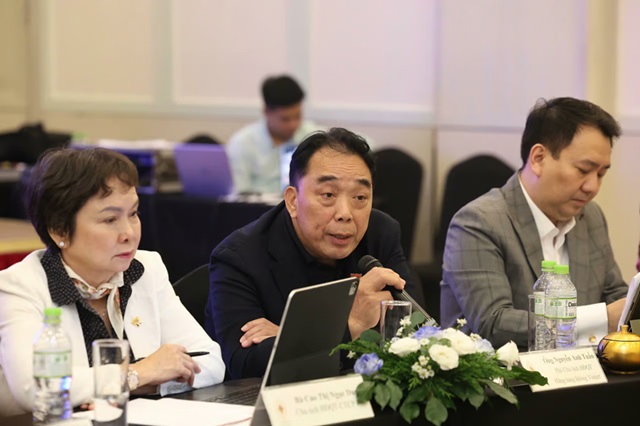 Mr. Nguyen Anh Tuan, Vice Chairman of Vietjet Air (center), discusses at the meeting.
|
Mr. Nguyen Anh Tuan, Vice Chairman of Vietjet Air, clarified that “nation-building” is not just a slogan but a comprehensive action plan. According to him, nation-building involves jointly developing strategies, formulating policies, implementing actions, and monitoring results. To make this a reality, Vietnam needs to institutionalize an organization with a clear operating mechanism. This organization must include representatives from both the government and the business community to resolve policy bottlenecks, such as fostering genuine cooperation among private enterprises.
Regarding policy mechanisms, Mr. Tuan highlighted the importance of developing internal capabilities when assigning projects to the private sector. Policies should mandate a certain percentage of domestic contractors to build not only general contracting capabilities but also enhance the capacities of investors and operators. This will be key to addressing technology transfer challenges.
Investor capability, as defined by Mr. Tuan, encompasses vision and the ability to identify problems and opportunities. A visionary investor will establish an organizational system and select suitable general contractors. Therefore, it is essential to identify and assign tasks to lead investors with the necessary capabilities, aligning with national strategic goals.
He proposed focusing on approximately 20 key projects that offer national benefits and competitive advantages, while leveraging existing resources. He cited the example of identifying core advantages from national resources—a broad concept that includes a large population, such as China’s massive purchasing power. In the oil and gas sector, oil reserves are a resource, and exploration is the core activity; in aviation, airspace is the resource, and flying is the core activity. From these core activities, supporting industries and services such as drilling rig manufacturing, port operations, and finance will develop. Once lead investors are identified, the government should assign them clear goals to build domestic general contracting capabilities and delegate tasks accordingly.
Finally, capital mobilization depends on the project’s effectiveness. Mr. Tuan asserted that if a project is well-designed and effective, capital mobilization will be straightforward, drawing from both domestic and international sources through channels like bond issuance, bank loans, or equity sales (within regulatory frameworks).
Mr. Tuan concluded that the immediate goal is to focus on selecting key projects, thereby creating a legal framework and policy mechanisms that guide and inspire all other projects. He believes that when the people clearly see their interests aligned with those of the Party and businesses, that will be the formula for the nation’s success.
|
On September 11, 2025, the Private Economic Development Research Board (KTTN) under the Government’s Administrative Procedure Reform Advisory Council (referred to as Board IV) and leading entrepreneurs jointly announced the Vietnam Private Economic Landscape (ViPEL) model. ViPEL is one of four critical tasks assigned by the Prime Minister to Board IV. It is the only model that comprehensively links all major sectors of the economy, structured into four committees: Committee I – Emerging technologies and innovation; Committee II – Infrastructure development and nationally competitive sectors; Committee III – Manufacturing and processing industries; Committee IV – Resource and service development. The goal of the Vietnam Private Economic Landscape (ViPEL) is to transform Resolution 68 of the Politburo into reality, not just words on paper. This requires legislation, specific operating mechanisms, and measurable outcomes. Following the announcement, ViPEL will officially launch with the first working sessions of the four committees (from September 28–30). These sessions will lay the groundwork for the model’s activities, prepare for the ViPEL program on October 10, and establish a long-term, regular work plan. The meetings will focus on four objectives: 1. Identify major challenges and growth opportunities for breakthrough development in each committee’s sectors and fields. 2. Determine key projects for 2025 at the ViPEL 20, 200, and 2000 levels, and identify lead enterprises to coordinate with the public sector. 3. Define strategic approaches for each committee and propose public-private mechanisms to ensure sustainable progress from 2026 onward. 4. Provide feedback to refine the public-private implementation mechanism. |
– 08:19 29/09/2025
Post-Resolution 68: Over 19,000 New Businesses Established Monthly
Following the implementation of Resolution No. 68, over 19,100 new businesses are established monthly, marking a nearly 48% increase compared to the average of the first five months of the year.
“The Billionaire’s Burden: Entrepreneurial Duty Beyond Profit”
“The esteemed billionaire, Nguyen Thi Phuong Thao, underscores the multifaceted responsibilities of entrepreneurs. Beyond the pursuit of profits, she emphasizes the critical role of creating societal value. This holistic approach to business underscores a deeper understanding of the entrepreneur’s impact on the world.”
“Premier Pushes for Swift Finalization of High-Speed Rail Standards”
On the morning of August 30, Prime Minister Pham Minh Chinh chaired a meeting of the Government’s Standing Committee to review the progress of the high-speed North-South railway project and the Lao Cai – Hanoi – Haiphong route.






